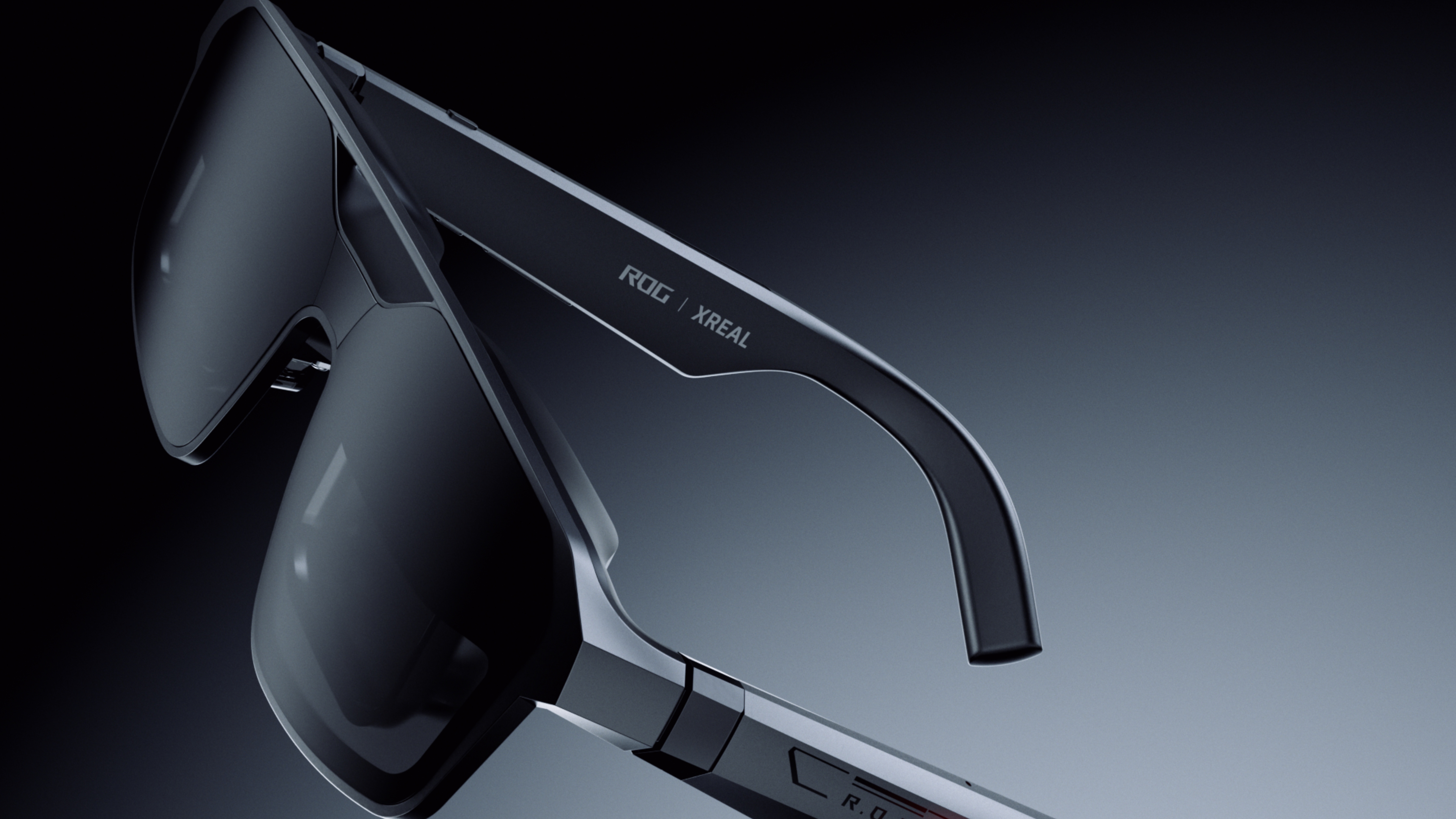Samsung Galaxy Z Fold 6 vs. Google Pixel Fold: Which should you buy?
The Pixel Fold may be a year old, but it still holds up incredibly well against Samsung's latest.
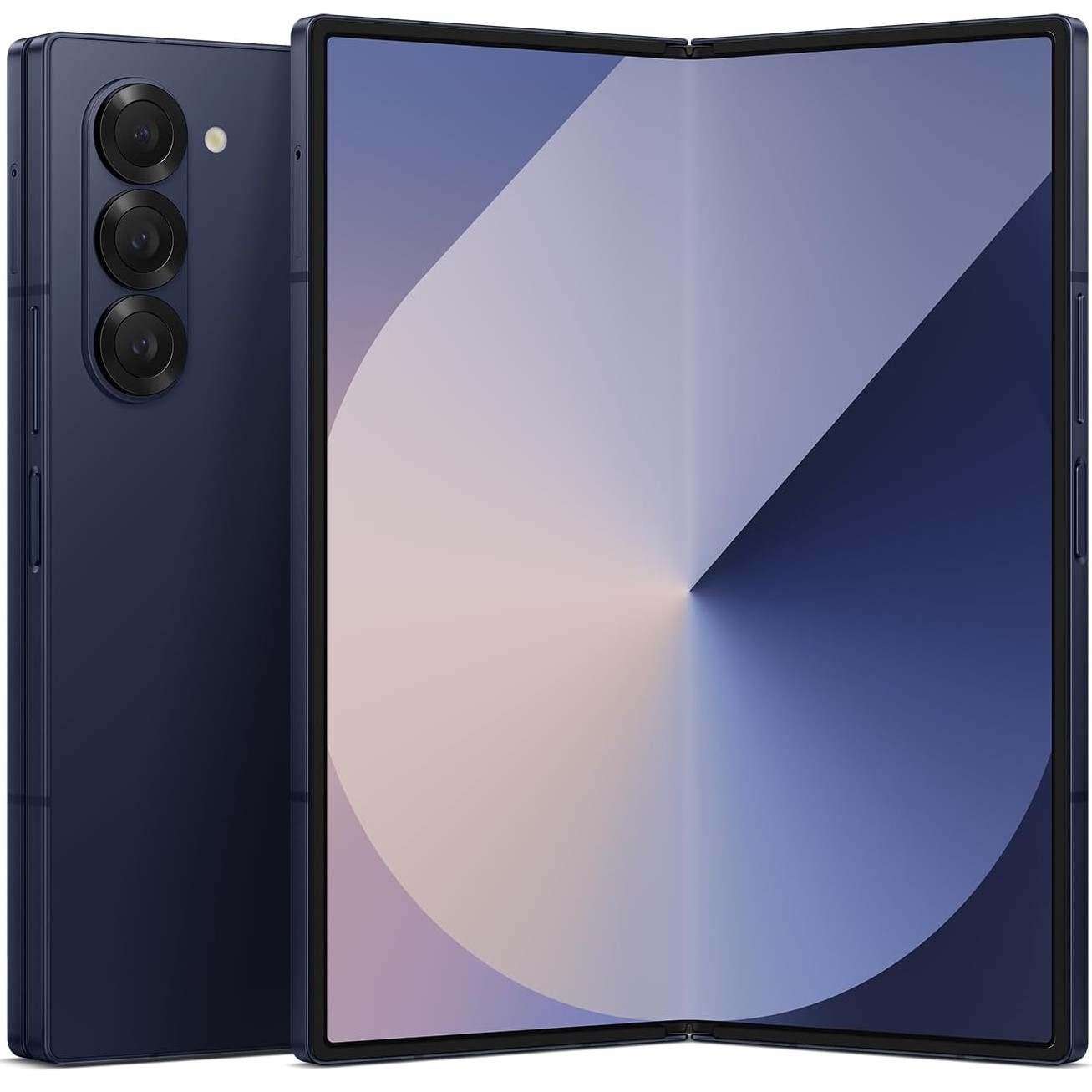
Uninspired
I'll be upfront and say that I don't like what Samsung is doing with its foldables; the Galaxy Z Fold 6 retains the same design as its predecessor, and that means you still get the same narrow cover screen that doesn't allow you to do much. As someone who uses the cover screen predominantly, the Z Fold 6 is a non-starter for my own use. That said, Samsung rolled out the usual yearly upgrades: the phone is more powerful, has better ingress protection, and comes with a slate of AI features. However, the fundamentals are unchanged, and you'll need to pay an additional premium this year — which just isn't worth it.
Pros
- Standout build quality
- IP48 ingress protection
- Incredible hardware
- AI-assisted software with seven years of updates
Cons
- Costlier than last year
- Average battery life
- Cover screen has limited usability
- Tall and unwieldy to use
- Unchanged cameras
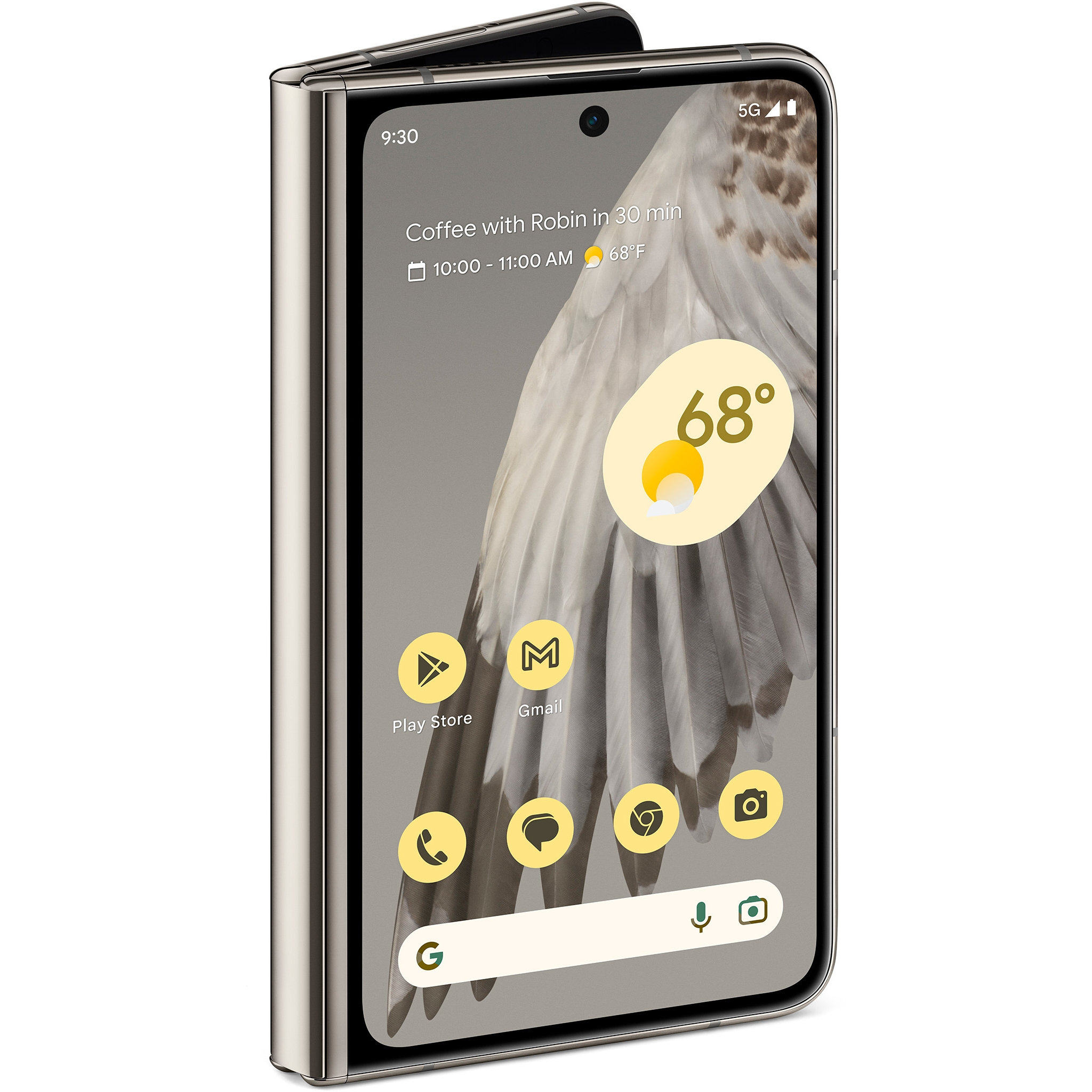
Heavy metal
The Pixel Fold is an intriguing device if you want a foldable that's not tall and unwieldy. The 5.8-inch cover screen is great to use, and it unfolds to 7.6 inches — the same size as the Galaxy Z Fold 6. The quality of the panels is excellent, you get one of the strongest camera packages in this segment, and you get Google's clean software with a ton of useful extras. That said, the Pixel Fold is 54g heavier than Samsung's offering, it doesn't fold fully flat, and you can't buy it in most global markets.
Pros
- Usable cover and inner screens
- Excellent cameras
- IPX8 ingress protection
- Clean software with plenty of unique extras
- Great battery life
Cons
- Heavy
- Not as powerful as Z Fold 6
- Doesn't fold flat
- Limited global availability
- Won't get as many software updates
Samsung Galaxy Z Fold 6 vs. Google Pixel Fold: Design
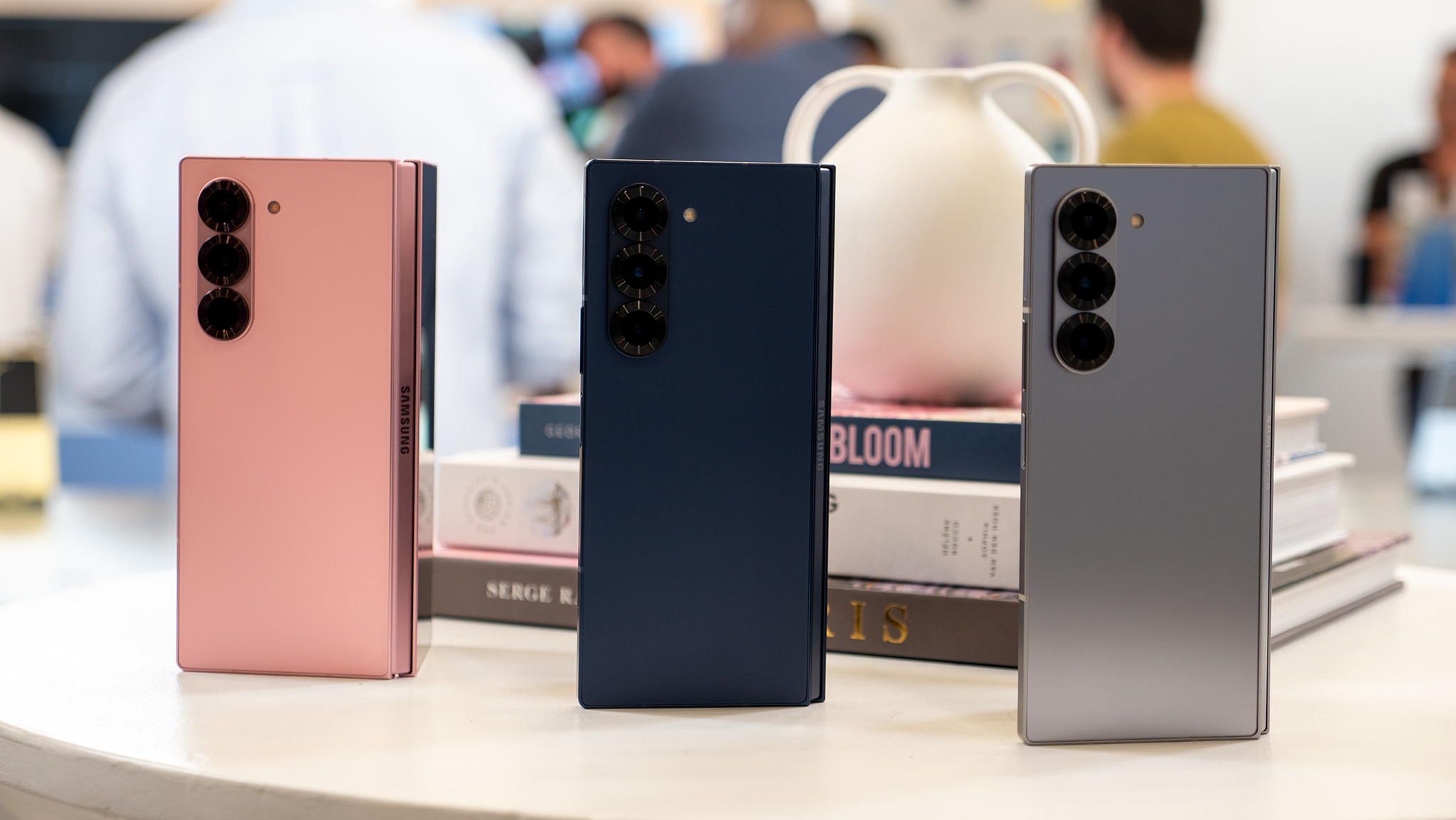
Samsung doesn't like changing the design of its devices, and that's evident when you take a look at the Galaxy Z Fold 6. The foldable is a smidgen thinner and taller than its predecessor, but the overall design is identical. The only difference is that the cameras have slightly bigger rings encircling each module, but other than that, there's no telling that you're using Samsung's latest-gen foldable.
The other key difference is that the Z Fold 6 is lighter; at 239g, it is 16g lighter than its predecessor, and you can feel that when using the device. Samsung is also using the latest iteration of its Armor Aluminum chassis, and that should allow the Z Fold 6 to be resilient in daily use. The hinge isn't as smooth to articulate as the Magic V2 or other 2024 foldables I've used, and it is quite stiff.
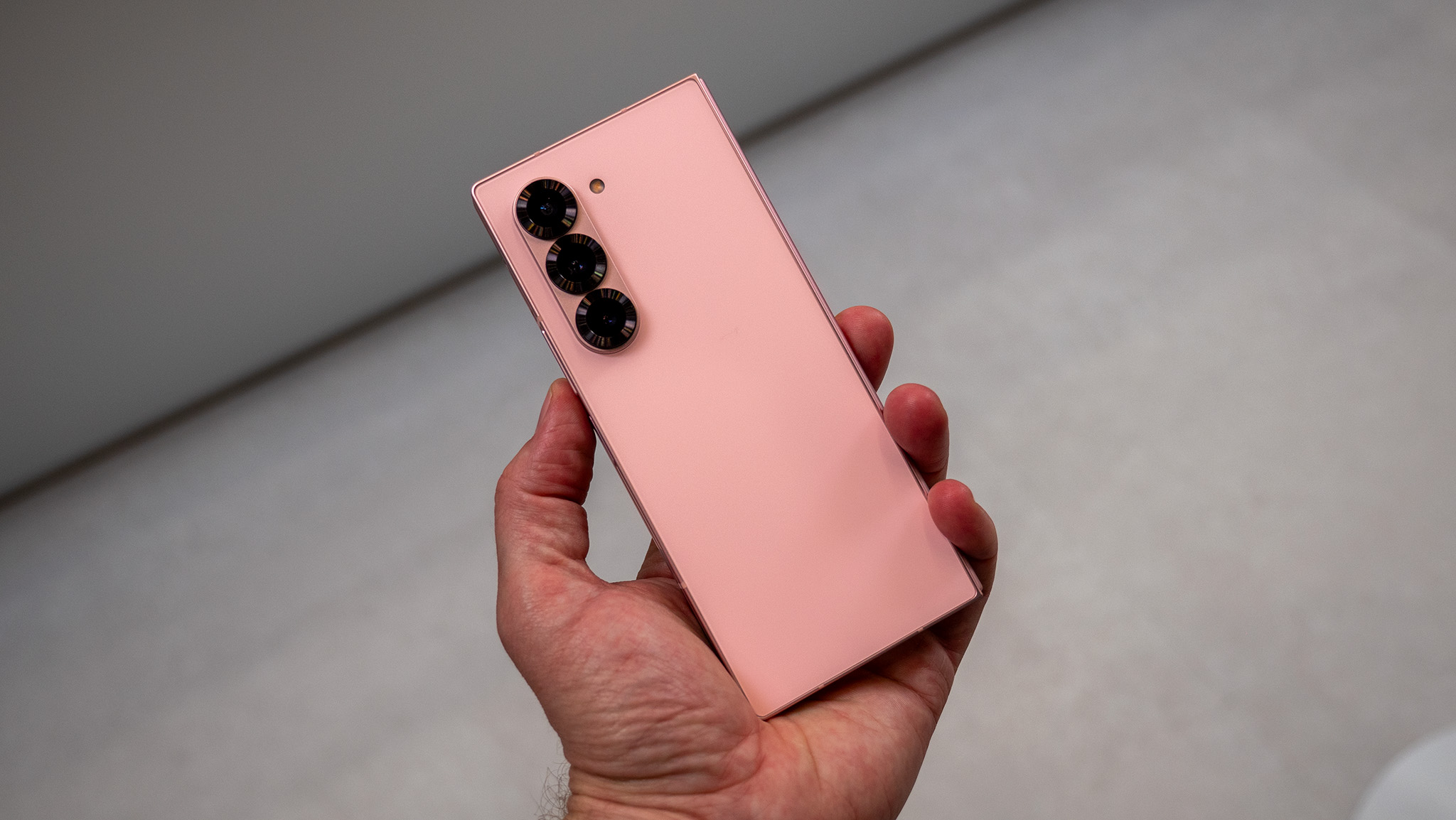
That said, the addition of IP48 ingress protection gives the Z Fold 6 a distinct advantage in this category; most foldables — including the Pixel Fold — still have an IPX8 rating, and by adding dust resistance into the mix, the Z Fold 6 is able to withstand the elements just that little better.
Coming to the Pixel Fold, the foldable isn't going to win any design awards, but Google nailed the fundamentals. It is great to hold and use (if a little wide), and it has the same caliber of build quality as the Z Fold 6. However, the Pixel Fold is one of the heaviest phones you can buy today — if not the heaviest overall. At 283g, it is a full 44g heavier than the Z Fold 6.
The biggest issue with the design of the Pixel Fold is that it doesn't fold fully flat, and that gets annoying in daily use. The Z Fold 6 has no such shortcomings, but the downside is that the crease is still noticeable — much more so than most other devices in this segment.
Samsung Galaxy Z Fold 6 vs. Google Pixel Fold: Displays
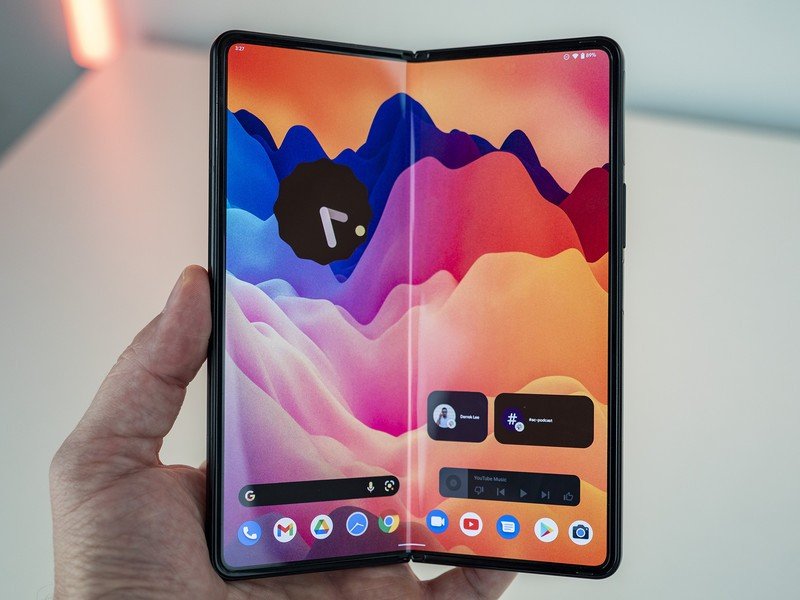
In all measurable metrics, Samsung has the lead in this area; both the inner and outer panels of the Z Fold 6 get brighter than the Pixel Fold, and they get dynamic refresh that goes to 120Hz. But the problem is that Samsung continues to limit the usability of the cover screen, and the 6.3-inch outer screen is just too tall and narrow to get any meaningful work done.
This has been a constant source of annoyance in the past, and I thought Samsung would amend the situation with the Z Fold 6, but that wasn't the case. All other foldables have regular-sized outer panels that give you greater flexibility in this regard, just like the Pixel Fold. Although the device has a smaller 5.8-inch panel on the outside, it is much more usable thanks to its 17.4:9 ratio; it's just better to use to see emails and messaging clients.
Get the latest news from Android Central, your trusted companion in the world of Android
Both devices get the same 7.6-inch inner screen, and the AMOLED panel on Samsung's offering has better colors and brightness, making it a great choice for streaming content and gaming.
Samsung Galaxy Z Fold 6 vs. Google Pixel Fold: Hardware and cameras
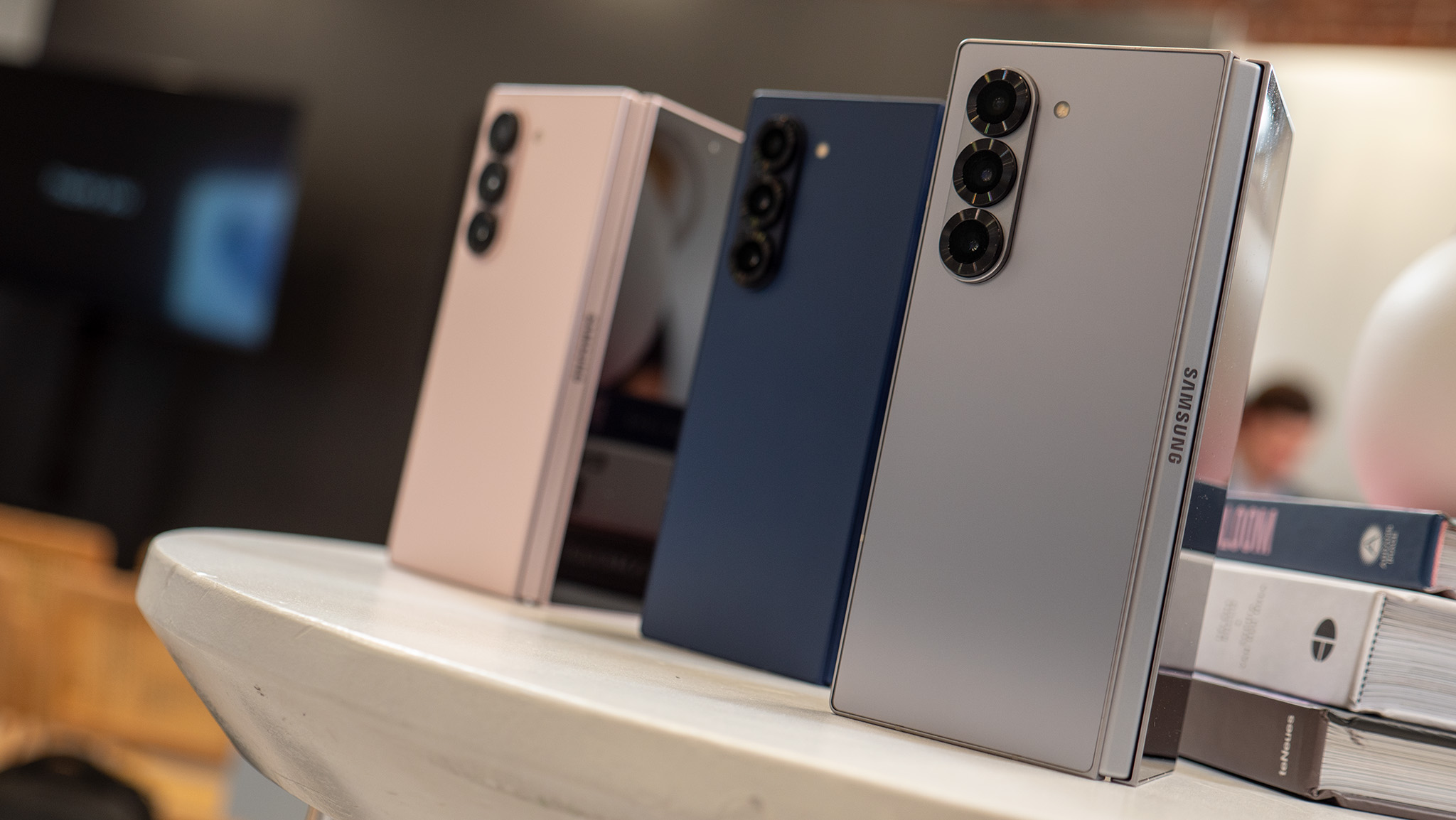
Samsung has a clear edge when it comes to the hardware, and that's solely down to the use of the Snapdragon 8 Gen 3. Samsung uses a custom version of Qualcomm's silicon that's reserved for its devices, and it has slightly higher clocks than the regular model.
You get 12GB of RAM and 256GB of UFS 4.0 storage as standard on the Z Fold 6, along with Wi-Fi 7, Bluetooth 5.3, NFC, UWB, AptX HD codecs, and USB-C 3.2 connectivity. There isn't much missing in this area, and while I wanted Samsung to increase the battery size, the 4400mAh unit should last all day with medium use.
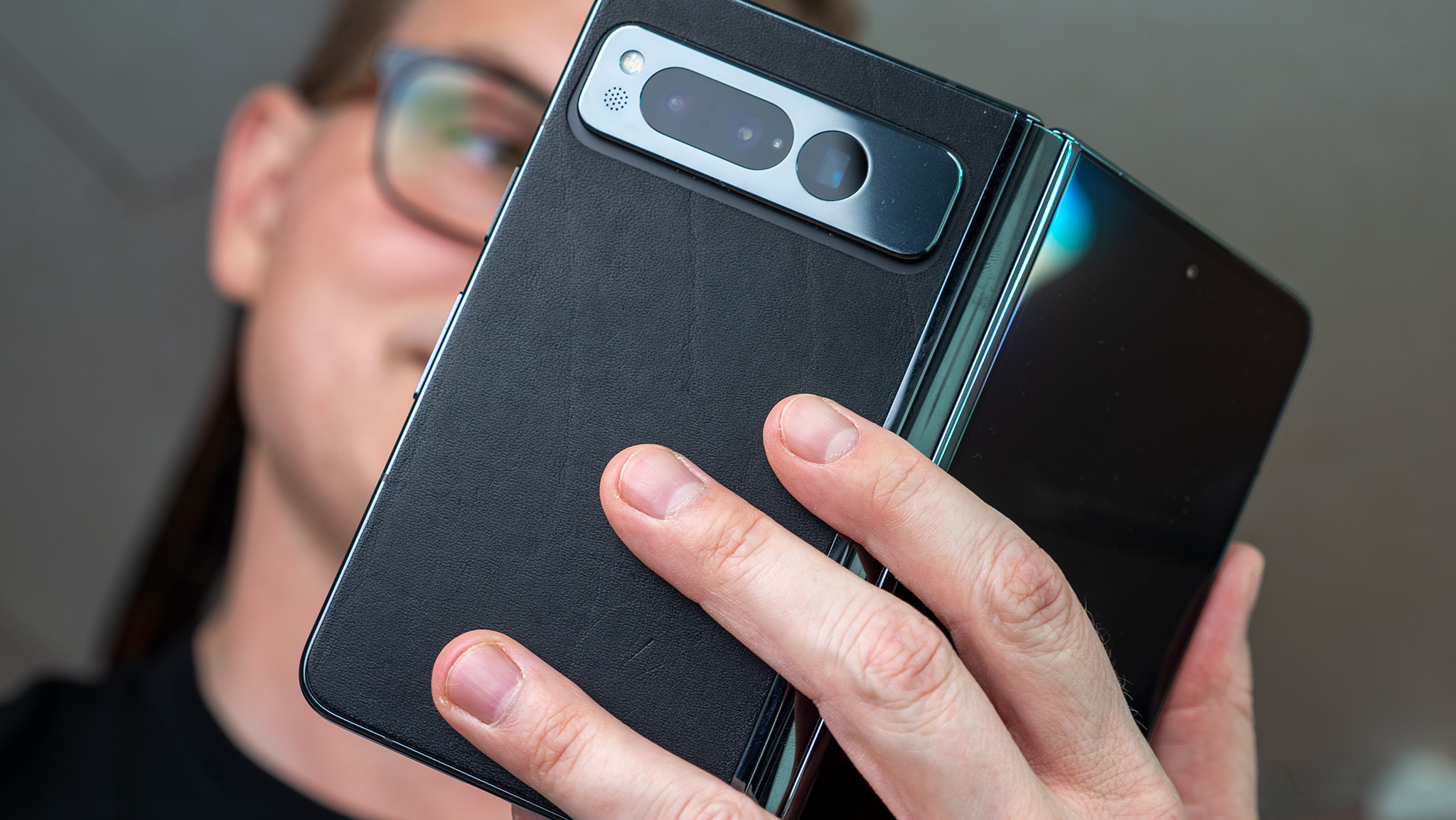
Google makes it clear that it doesn't offer the best internals on its devices, instead prioritizing AI use cases. As a result, the Tensor G2 on the Pixel Fold is distinctly second-rate, and while it is decent enough in daily use, the shortcomings are noticeable when you start running demanding games.
The Pixel Fold also falls behind in other areas; it uses UFS 3.1 flash storage, and there's no 1TB option available. Where it does come out ahead is battery life, with the 4821mAh battery able to deliver up to a day's worth of use consistently. Google also has a distinct advantage in the imaging side of things, and the Pixel Fold takes outstanding photos in just about any scenario.
It has a decent set of lenses as well, and when you add Google's camera wizardry, the Pixel Fold remains one of the best foldables around in this area. Samsung hasn't changed much with the Z Fold 6, and while it uses last year's sensors, tweaks to camera algorithms allow the device to take better photos in low-light situations.
Samsung Galaxy Z Fold 6 vs. Google Pixel Fold: Software
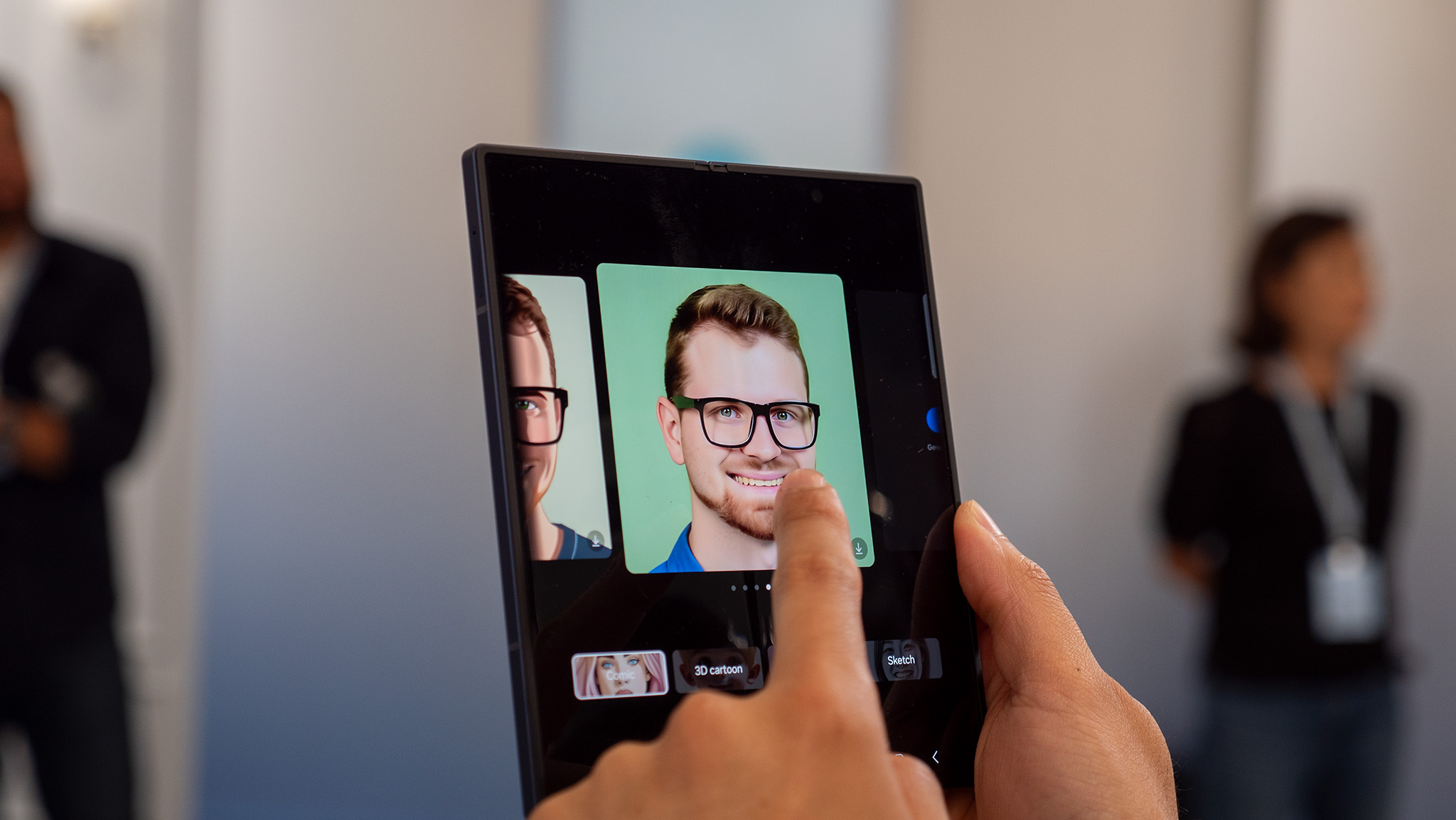
I prefer Google's software, so it shouldn't be astonishing that I recommend the Pixel Fold out of these two devices. Samsung has a lot going on with One UI 6.1, and Galaxy AI is legitimately useful — the new drawing feature is undoubtedly cool. That said, the interface is starting to get bloated again, and it just doesn't have the fluidity that you get with most other manufacturers.
That said, Samsung is offering seven Android OS updates with the Z Fold 6, and that's in line with what you get on the Galaxy S24 models. While Google also has the same update policy with the Pixel 8 and 8 Pro, the Pixel Fold will only receive two additional Android updates, and that's a shame.
Samsung Galaxy Z Fold 6 vs. Google Pixel Fold: Which should you buy?
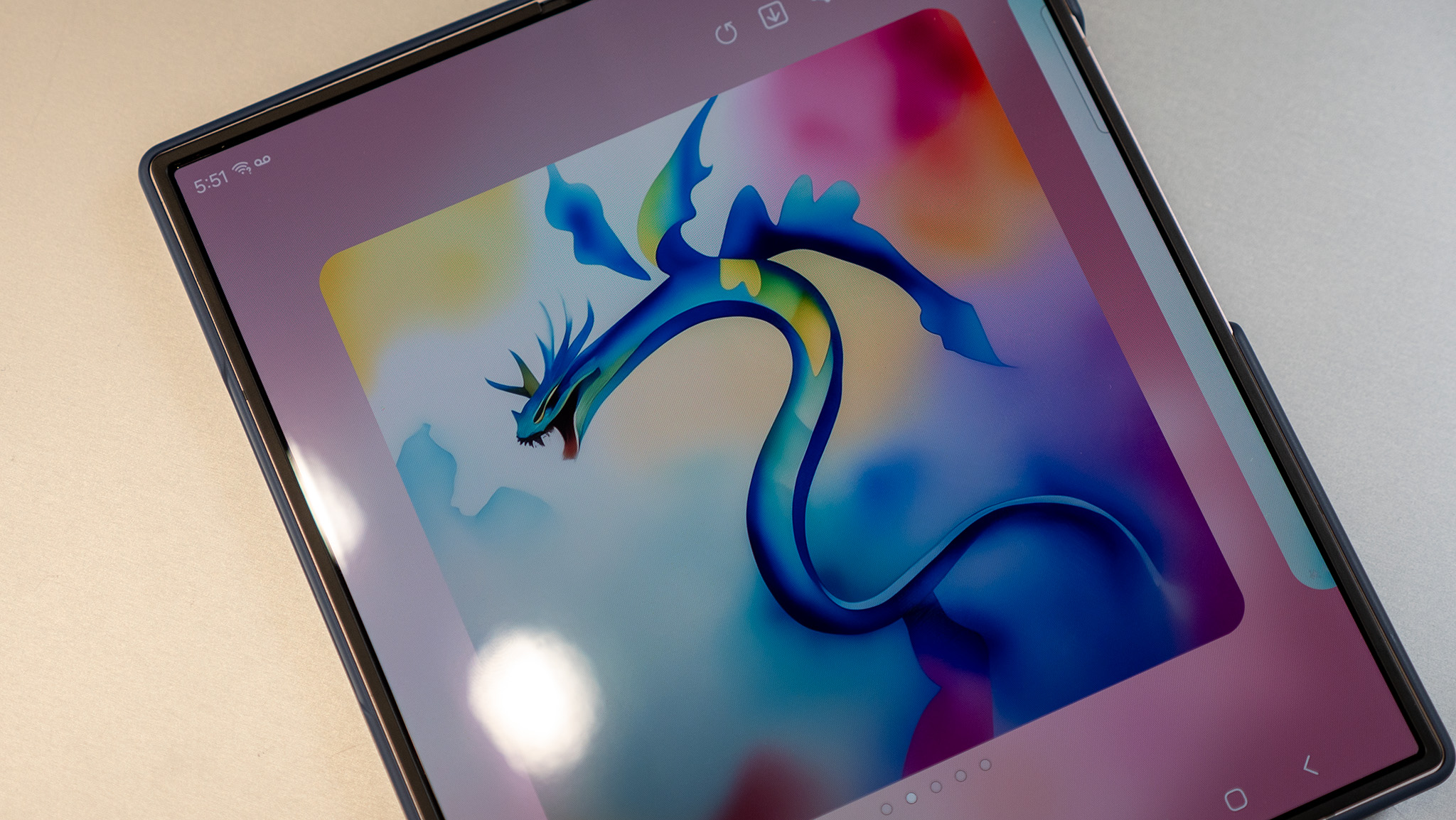
Usually, I try to recommend one of the devices I'm writing about in these versus posts, but that's hard to do here. The problem is that neither device is anywhere close to the best that this segment has to offer. Samsung is essentially unchallenged in North America, so it doesn't need to innovate with its foldable designs, and that is immediately evident when looking at the Galaxy Z Fold 6.
Chinese brands offer much better hardware, sleeker designs, and outstanding cameras, but as they don't sell their foldables in the U.S., you're essentially left with limited options. If you are interested in a new foldable, I'd suggest getting the OnePlus Open; it has two usable screens, terrific cameras, great software, and stellar battery life. And at $1,699, it undercuts both the Pixel Fold and Z Fold 6.
Out of the Galaxy Z Fold 6 and Pixel Fold, I'm inclined to recommend the latter; it has better battery life, and you get two usable screens. Obviously, the hardware isn't as powerful, and at 283g, it is considerably heavier, but the software is much better overall, and you get better battery life as well.

Uninspired
Samsung has plenty to offer with the Z Fold 6, but the $1,899 asking price makes it a non-starter. There just isn't enough in the way of upgrades to warrant that price, and if you must have a Samsung foldable, you should just get last year's Galaxy Z Fold 5 instead.

Heavy metal
The Pixel Fold didn't have the best internals when it debuted a year ago, and it isn't really the best in this area. But you get gorgeous hardware, great cameras, clean software with timely updates, and reliable battery life.

Harish Jonnalagadda is Android Central's Senior Editor overseeing mobile coverage. In his current role, he leads the site's coverage of Chinese phone brands, networking products, and AV gear. He has been testing phones for over a decade, and has extensive experience in mobile hardware and the global semiconductor industry. Contact him on Twitter at @chunkynerd.
You must confirm your public display name before commenting
Please logout and then login again, you will then be prompted to enter your display name.
